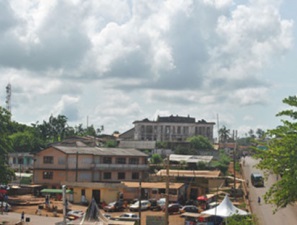The Ghanaian government has imported the barges to address the country’s power crisis. The facilities are expected to generate about 450 megawatts (MW) for system stability. They are expected in the country by the end of April 2015.
James A. Bever says the Ghanaian government would have to commit a lot of funds to the project in order to assure the private operators of the power barges that they would be paid for their services in future. He prefers that the government urgently address the resuscitation of the thermal plants in Takoradi, the vibrant oil city in the west of the country. Ghana had a nameplate electricity generating capacity of 3,000MW-of which 2,600MW was dependable – as of December 2013, the latest date for which data is available from the country’s Energy Commission. Of this dependable, the Takoradi International Company (TICO), which produces 220megawatts of electricity, is down and undergoing maintenance. This leaves only two of the Takoradi Thermal Power Stations working. The country has experienced severe power outages in the last two years.
“The options that your government has identified in trying to get some power barges mounted, which are basically mobile power generation equipment, is a short-term solution but it is going to be expensive and the country is going to have to come up with the funds to assure the suppliers that they are going to get paid because it is a private deal”, Bever told the local press. “The equipment runs on fossil fuel and it is going to cost you something,” Mr. Bever stated. In AID dependent countries like Ghana, the USAID is a powerful organization. The words of people like Mr. Bever, who is at the end of his two year tour of duty, are taken seriously.
“The good news is the world oil prices have dropped in half so those refined products that are used to power those barges should be more affordable than it would have otherwise. But in the short-term, there is no other solution, the faster they can get the power plant operating again in Takoradi and adjust it to be able to burn oil, gas the better. To an extent Ghana can persuade Nigeria to honour its commitments in the West African Pipeline accord, that too would help the country,” he said.
28 Февраля 2026 | суббота | 10:12


